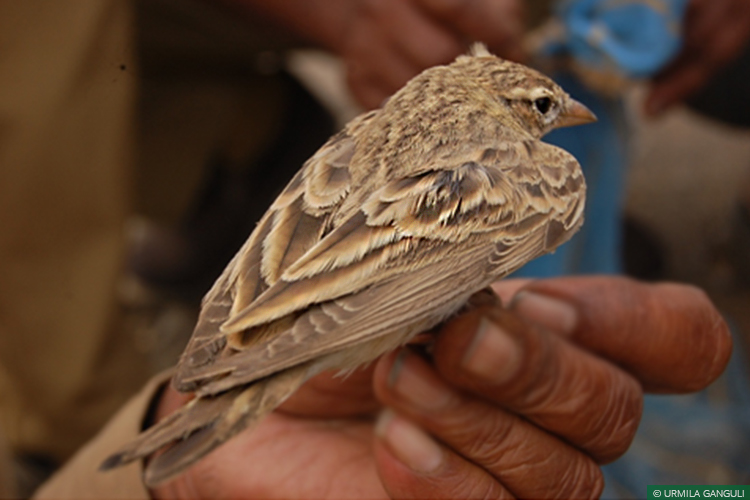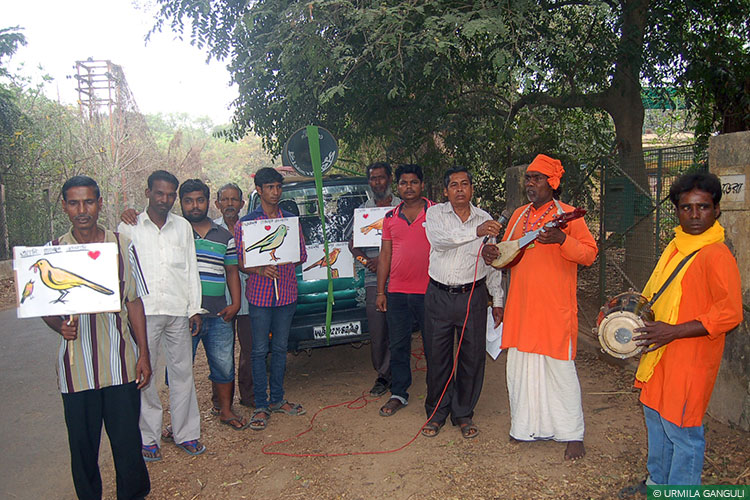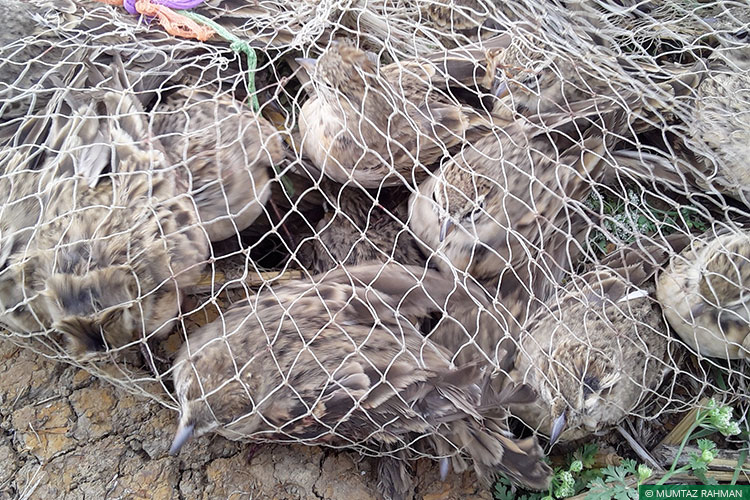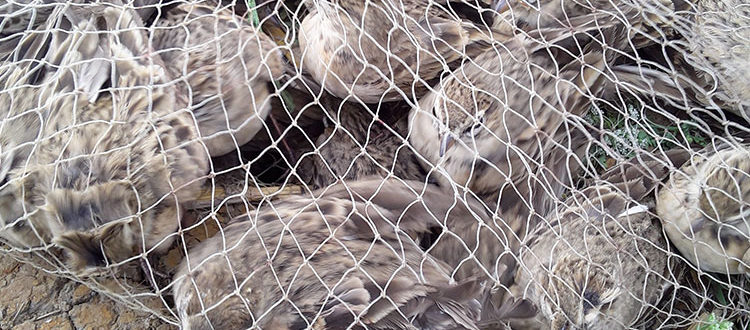One RAP, Three Months: Five Poaching Attempts Thwarted, Seven Poachers Apprehended, 3200 Short-toed Larks Rescued

A rescued Greater short-toed lark
West Bengal, May 25, 2017: The Greater short-toed lark (Calandrella brachydactyla) is one of several species of migratory birds that spend their winters in India. It arrives in large flocks from Russia, China and Mongolia, and makes its home mainly in the crop fields of the Birbhum, Murshidabad and Bardhaman districts of West Bengal between September and April.
The Greater short-toed lark is known to feed on insects, particularly beetles, through most of the day and spends the night on the ground in agricultural fields. This behaviour makes it especially vulnerable to poachers as well as locals who have developed a taste for its meat.
Reports from local conservationists suggest that the scale of lark poaching has grown exponentially in the last couple of years, leading to a rapid population decline. The larks, known locally as bageri, bogari, chotui pakhy and laragurgury, are trapped by professionals and sold in local markets for Rs 15-20 a bird or Rs 250-400 for a dozen. The meat is considered a delicacy and can be found openly listed as a starter on the menus of roadside dhabas and restaurants. Greater short-toed larks, it should be mentioned, are protected under Schedule IV of the Wild Life (Protection) Act, 1972.
Informers were placed in 36 targeted villages across Birbhum, Murshidabad and Bardhaman to gather intelligence about the hunting of larks.
To address this emergency, Wildlife Trust of India’s Wild Aid division initiated a Rapid Action Project (RAP) in collaboration with Dr Urmila Ganguli, Honorary Wildlife Warden, Birbhum, and the forest and police departments of the three districts. A multi-pronged approach was evolved to curtail the rampant poaching. Informers were placed in 36 targeted villages across the districts to gather intelligence about the hunting and consumption of larks. Simultaneously, an intensive sensitisation programme was launched among the local populace. Baul minstrels, through their folk songs, spread awareness about the larks’ ecologically vital role as natural pest control agents and the fact that their droppings act as organic fertilizer for crops and plants. The songs also urged people to end the demand for lark meat, emphasising how cruel it was that these small birds, having migrated from faraway lands, were now being slaughtered in local homes.

A sensitisation program using Baul minstrels being conducted in a targeted village of Birbhum district, West Bengal
Soon after these initiatives were set into motion, informers as well as locals (through the sensitisation events) began providing intelligence about the movement of poachers, their preferred hunting grounds, and markets where the birds were being traded.
It was found that poachers from Birbhum and Murshidabad would visit the congregation sites of larks during the day when the birds were on crop fields, feeding. They would install mist nets between tall bamboo poles planted into the ground. At nightfall, they would stun and disorient the resting birds using high intensity torches and drive them into the mist nets.
The larks would later be untangled from the nets and put in small baskets and bags. With a high demand from neighbouring districts, the baskets would be stacked on top of each other and transported on the roofs of interstate buses. Local autorickshaws (bhotbottis) fitted with loud music systems to drown out chirping sounds were also used to transport live larks. Some of the birds, their throats slit, would be carried in shopping bags by locals.
During the three-month RAP, the field team in collaboration with the forest and police departments was able to stop five poaching attempts, apprehend seven poachers, seize several bundles of mist nets and rescue over 3200 birds. The seizure of mobile phones has also helped the police track poaching gangs in other districts of West Bengal.
It is hoped that with local populations having been sensitised and the methods of poaching groups laid bare, as the Greater short-toed larks flock to West Bengal once again in September, their hunting and the consumption of their meat will both see a significant downturn.

Short-toed larks trapped in a mist net in Birbhum district, West Bengal









